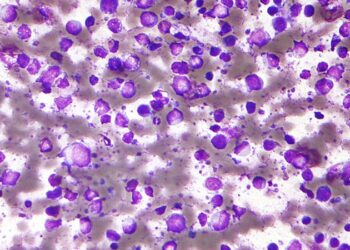TOPLINE:
Racial disparities in access to medication for opioid use disorder (MOUD) have persisted in the United States, with Black patients having lower rates of medication receipt, fewer days of medication supply, and reduced retention rates from 2014 to 2022.
METHODOLOGY:
- Researchers used a national database to assess the receipt of MOUD in outpatient settings from 2014 to 2022 to identify whether racial disparities exist in commercially insured populations across the United States.
- They included the data of 32,929 patients (mean age, 52.98 years; 91.68% White individuals; 8.32% Black individuals) with two or more outpatient nondrug claims with OUD diagnosis codes within any 2-year observation period.
- This study focused specifically on comparing Black and White populations and analyzed the receipt of buprenorphine, naltrexone, and methadone within 180 days of OUD index diagnosis.
- The primary outcome was the access to medication treatment for OUD within 180 days of index diagnosis, measured using the medication receipt rate, days of medication supply, and retention rate.
- Patients who received MOUD were compared with those who did not during the observation period.
TAKEAWAY:
- Black patients were 62.2% as likely to receive any MOUD as White patients (adjusted odds ratio [aOR], 0.622; 95% CI, 0.528-0.733).
- Black patients had 39.8% lower odds of receiving buprenorphine (aOR, 0.602; 95% CI, 0.459-0.731) and 41.8% lower odds of receiving methadone (aOR, 0.582; 95% CI, 0.357-0.948) than White patients.
- State-level disparities were observed, with 25 out of 41 states showing lower medication receipt rates among Black populations than among White populations, with the largest disparities observed in Washington (38%), New York (30%), and New Jersey (27%).
- Black patients had fewer total days of supply for buprenorphine, methadone, and any MOUD than White patients, and the retention rate for buprenorphine was lower among Black patients than among White patients. Quarterly rates of receipt for MOUD were higher among the White than the Black population, except from the fourth quarter of 2018 to the third quarter of 2020.
IN PRACTICE:
“[The study] findings underscore a pervasive racial inequality in healthcare access and treatment for OUD, pointing to systemic issues that require urgent attention to ensure equitable healthcare delivery,” the authors wrote.
“Our study serves as a call to action for healthcare providers, policymakers, and community stakeholders to collaboratively work towards removing systemic barriers and ensuring that all individuals, irrespective of race or geographic location, have equitable access to effective MOUD treatment,” they added.
SOURCE:
This study was led by Jingna Feng, MSc, of the Department of Artificial Intelligence and Informatics, and Yuting Huang, MBBS, PhD, of the Division of Gastroenterology & Hepatology, both at Mayo Clinic, Jacksonville, Florida. It was published online on February 25, 2025, in the Journal of General Internal Medicine.
LIMITATIONS:
The reliance on the national commercially insured electronic medical record database, which lacks inpatient data, limited the scope of the study to outpatient settings. The predominantly commercially insured population may not have represented uninsured individuals with OUD, affecting generalizability. The observational nature of the database precluded establishment of causal inferences. The older age of the study cohort compared with a nationally representative sample may have limited the applicability of the findings.
DISCLOSURES:
This study was supported by a grant from the National Institutes of Health. The authors reported having no relevant conflicts of interest.
This article was created using several editorial tools, including AI, as part of the process. Human editors reviewed this content before publication.
Source link : https://www.medscape.com/viewarticle/unequal-access-racial-divide-opioid-treatment-2025a10005wo?src=rss
Author :
Publish date : 2025-03-11 11:24:00
Copyright for syndicated content belongs to the linked Source.














